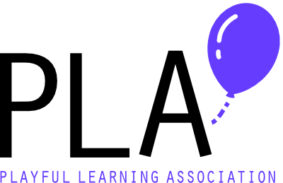Playing with poetry to improve academic writing skills
Corresponding Author: Martina Diehl
All authors:
Length: 60 minutes
Location: Gallery Room 1
Description:
Academic Writing is often seen as something daunting, and difficult. Students struggle to come up with the ‘correct’ words, have difficulty developing a hypothesis, or struggle with the narrative flow and creating connections with the literature (Aldabbus and Almansouri, 2022, p. 6). These issues with academic writing are a great source of frustration to students. To enable learners to think beyond the structures and confines of academic writing, we embark on a journey through meaning-making with poetry to engage in enjoyable language play. In this session we will consider ways of writing, reflection and self-expression to make academic writing a more playful and enjoyable experience.
Throughout my PhD on creative and critical engagement with poetry in the secondary school classroom I have used poetry as a way to reflect on and present the literature and data. Through this process, I found both poetry and academic writing have a lot of potential through their creative and critical approach to making meaning. Research can be a messy journey, and an attempt to find a way through it to present ‘a coherent argument and story’ that is readable, is no easy task (Wisker, 2016). Poetry provides space that is free from grammatical constraints and allows for people to bring their own language and emotion into play to create a meaningful story.
This workshop will look at different playful and poetic ways of reflecting on various aspects of the academic journey with and through poetry. Poetry functions as a vehicle to make meaning, to explore different perspectives and to play with words without the fear of failure. As academic development advisor, I use these activities in my own teaching with successful results, enabling students to overcome writer’s block, and students saying that they ‘didn’t realise academic writing didn’t have to be boring.’
Workshop structure (60 minutes):
• Introduction: playful introductions in groups
• Connecting creativity, evaluative thinking and language play
• Introduce activity 1: what is a haiku and why might it be useful? (with examples)
• Activity 1: write a haiku about a concept from your research topic / playful learning conference
• Share & discuss
• Introduce activity 2: Diamond-shaped poem: from problem finding to problem solving (with examples)
• Activity 2: write a diamond shaped poem where you address a problem and come up with a solution
• Share & discuss
• Introduce activity 3: The Furniture Game poem: become a concept / participant / aspect of your research.
• Activity 3: Write a short Furniture game poem using a stream of consciousness mentality.
• Final discussion, reflections and questions: Did you find this useful, and if so, what was useful about it? How could you bring this into your practice?
References, web links and other resources:
Aldabbus, S., & Almansouri, E. (2022). Academic writing difficulties encountered by university EFL learners. British Journal of English Linguistics, 10(3), 1-11.
Diehl, M. (2020). Moving Forward with Poetry Lessons: Exploring How Poetry Can Stimulate Creativity and Criticality in English Secondary Schools. The Meaning of Criticality in Education Research: Reflecting on Critical Pedagogy, 127-149.
Wisker, G. (2016). Agency and articulation in doctoral writing: Building the messy research journey into a well-constructed thesis. In Research literacies and writing pedagogies for masters and doctoral writers (pp. 184-201). Brill.
